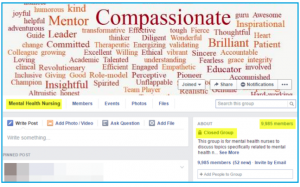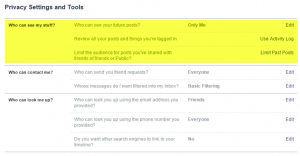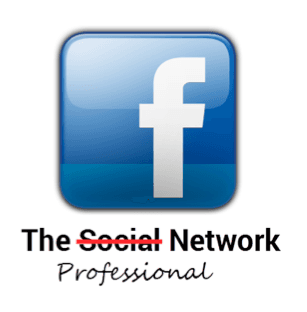By now, every recruiter interested in online sourcing is aware of Facebook Graph search; most are probably less aware Graph Search has now disappeared (take a look at this article from Tim Sackett for more information).
The Graph Search advanced filters have been completely removed, but searching on Facebook is still possible. So recruiters who have been actively recruiting on Facebook should be able to continue searching and contacting people much as they have been.
A Real Challenger for LinkedIn?
While Graph Search was very helpful, for recruiters it was never going to directly rival LinkedIn because such a small percentage of users actually included such professional details as their employer or job title on their Facebook profiles.
There is, however, another more subtle change occurring on Facebook that has the potential to significantly disrupt the recruitment landscape. I’m not talking about the new Facebook at Work tool, (which from what I can tell is really just a fancy internal communications tool) or even a change that Facebook itself has made. Instead, it’s a change in the way Facebook users choose to use Facebook.
Traditionally, the main strength of Facebook has been its news feed feature, but because of the rise to prominence of several new social networks for day-to-day news feeds (namely Snapchat and WhatsApp), a lot of the trivial personal content on Facebook has been eliminated. This has resulted in fewer concerns around the risk to personal privacy when it comes to using Facebook for professional networking, and therefore empowered users to confidently interact with people from outside their immediate networks in a wide variety of interest based Facebook Groups.
Facebook Groups
Facebook Groups also appear to have gained traction because most users are familiar with the application’s functionality and also it provides users with a less formal environment within which to interact (compared to LinkedIn Groups). As an example, Facebook users can join and interact in groups without having to disclose their employer or even share much more than their name. This is unlike LinkedIn where everyone’s professional background is always under full scrutiny.
Personally I’ve belonged to many interest groups for a long time, but it’s only over the last 12 months that I have begun to notice and engage in an increasing number of professional and alumni groups that have appeared on Facebook.
From my observations, I would estimate that the volume of professionals interacting on Facebook is now at least equal to LinkedIn. I believe this change is further influenced by declining LinkedIn Group engagement levels and also Facebook supporting a large demographic of workers who aren’t in LinkedIn’s core markets. (Nursing is a great example.)
This article is titled “Recruiting on Facebook” for a reason and I’m sure as switched on recruiters you can see where this is going. Because of these changing user habits there are now lots of easily identifiable and engaged candidates talking about work related topics on Facebook. In theory, as a recruiter, sourcing them should be like shooting fish in a barrel.
Obviously, it isn’t that simple, but there are great results available if you are prepared to invest time and effort in Facebook Groups. I feel it’s important not to take old-school sourcing methods and try to make them work on Facebook. Posting your jobs in these groups isn’t going to work and neither is messaging every group member. Instead, take time to interact with group members, building relationships to a point where you feel comfortable approaching people for specific opportunities. Alternatively, you should carefully cross reference group members on other social sites and then use Facebook Messenger as a tool to approach potential candidates.
Example
 The screenshot is from a Facebook Group we targeted for a social recruiting campaign in partnership with one of New Zealand’s District Health Boards. They were looking to attract mental health nurses from overseas to work in New Zealand. The results from this group far outperformed any other sourcing medium.
The screenshot is from a Facebook Group we targeted for a social recruiting campaign in partnership with one of New Zealand’s District Health Boards. They were looking to attract mental health nurses from overseas to work in New Zealand. The results from this group far outperformed any other sourcing medium.
Groups – Things You Need to Know
Some Facebook groups are secret, meaning there is no way to find them unless you are invited. Others are closed, meaning you must be invited. The vast majority are open groups. Normally closed and secret groups have the best engagement levels because they are carefully managed to ensure high content standards and to keep spammers out.
From my experience, results are better if candidates are able to gain a personal insight into the recruiter who is approaching them. After all, you are asking them to share their personal details with you. To show that I practice what I preach, my recently de-privatized Facebook profile is here, please feel free to connect with me.
 However, if you do feel more comfortable with your personal details hidden, the screen below is where you adjust these settings.
However, if you do feel more comfortable with your personal details hidden, the screen below is where you adjust these settings.
How to Find Groups
You can try clicking on ‘Find New Groups’ in the left hand bar. This will provide suggestions based on existing groups. A better method is to run a search for a specific interest or profession and then reformat your results by using the Groups tab.
Summary
Using Facebook professionally goes against everything we have been told over the last 10 years. Hopefully this article provides insight into the activity that is already happening on Facebook and the recruiting results you could potentially achieve.
If recruiting on Facebook is a step too far for you, a good place to start is to engage with like-minded professionals in interest groups. Once you get used to the format, the move to recruiting should be easier.
Here are some of my top recruiter groups, some are invite only, submit a request and you will likely be granted access in a few hours.
- Recruiters Online – run by Michael Kelemen
- The Recruiter Network – run by Craig Silverman
- Social Recruiting 101 – yes it’s my new group, but hey you have to start somewhere!
- SourceCon – a fast growing group, managed by our friends at SourceCon.
